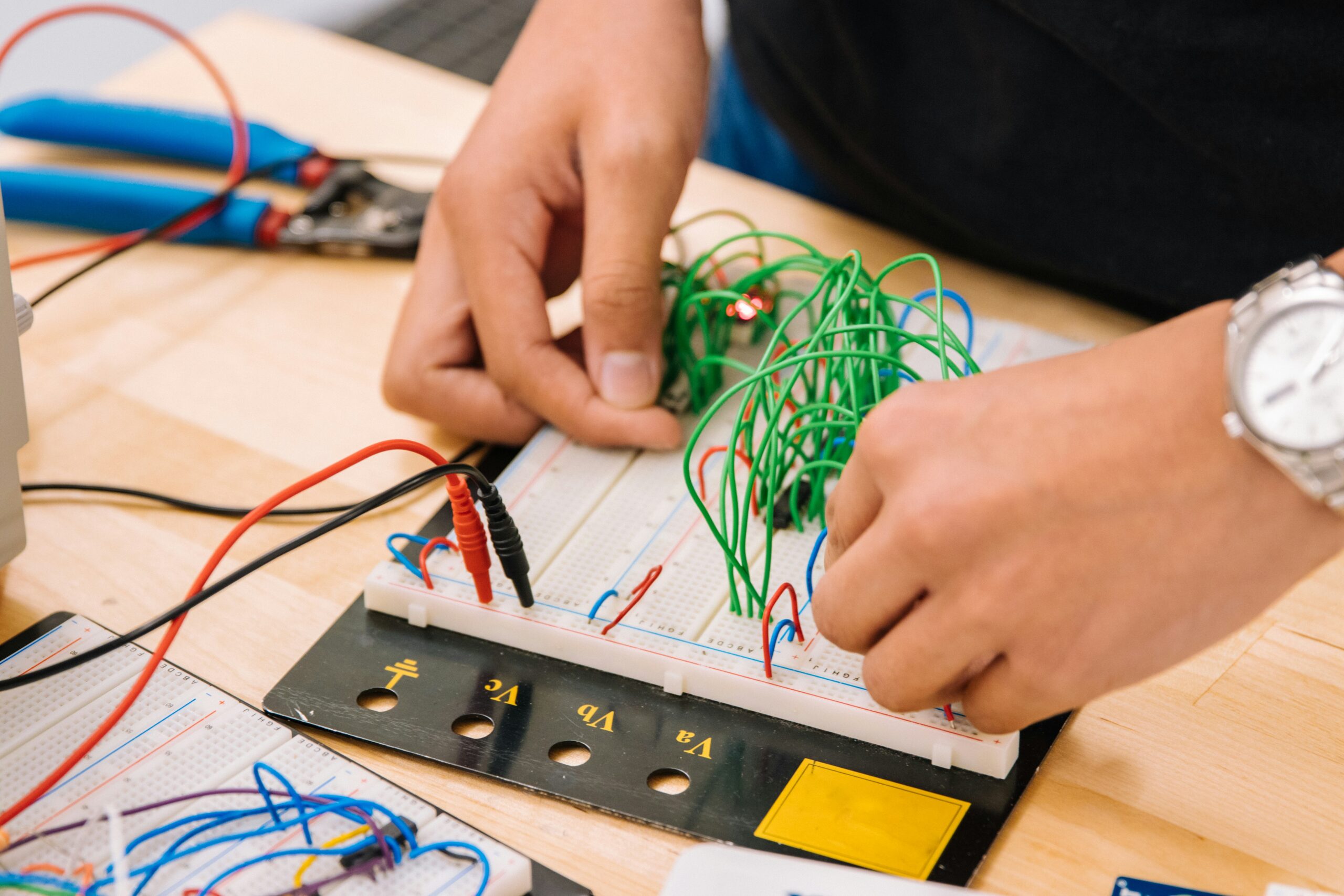Navigating Anxiety and Depression in Modern Women: The Challenges of Motherhood

Introduction to Anxiety and Depression in Modern Women
The prevalence of anxiety and depression among modern women has seen a concerning rise in recent years, underscoring the significant mental health challenges they face. Societal expectations, the quest for work-life balance, and personal pressures collectively contribute to these issues. According to the World Health Organization, women are nearly twice as likely as men to be diagnosed with anxiety disorders, and depression is also more common among women, affecting approximately 264 million people worldwide.
Modern women often juggle multiple roles, including professional responsibilities, caregiving duties, and maintaining social relationships, which can exacerbate feelings of stress and overwhelm. The American Psychological Association reports that 38% of women experience heightened stress due to these multifaceted roles, leading to an increased risk of anxiety and depression. The pressure to meet societal standards of success and perfection can further strain mental health, leaving women vulnerable to emotional distress.
Moreover, the impact of work-life balance on mental health cannot be overstated. Women often face the dual burden of excelling in their careers while managing household responsibilities. A study by the Anxiety and Depression Association of America found that 57% of working mothers experience anxiety, and 55% report symptoms of depression, highlighting the significant toll that balancing professional and personal life can take.
Personal pressures, including relationship dynamics and self-expectations, also play a crucial role in women’s mental health. The constant pursuit of being an ideal partner, mother, and professional can lead to feelings of inadequacy and chronic stress. Research indicates that women who internalize these pressures are more susceptible to developing anxiety and depression, as they struggle to meet the high expectations set by themselves and society.
Understanding these unique challenges is essential in addressing the mental health needs of modern women. By recognizing the contributing factors and their impact, society can take steps to provide better support and resources for women navigating anxiety and depression.
The Impact of Motherhood on Mental Health
Motherhood introduces a multitude of changes that can significantly impact a woman’s mental health. The physical transformations during and after pregnancy are profound. Hormonal shifts, sleep deprivation, and the physical demands of childbirth can exacerbate pre-existing anxiety and depression or trigger new episodes. These changes alter a woman’s body and mind, creating a fertile ground for mental health challenges.
Emotionally, motherhood is a double-edged sword. While it brings immense joy, it also comes with increased responsibilities and pressures. The need to balance parenting duties with career obligations, household chores, and maintaining personal relationships can be overwhelming. This balancing act often leaves mothers feeling stretched thin, contributing to heightened stress levels and, consequently, anxiety and depression.
Psychologically, the transition to motherhood can lead to feelings of inadequacy and self-doubt. The societal expectation to be the “perfect mother” exacerbates these feelings. Many women struggle with the fear of not meeting these standards, leading to a decline in self-esteem and mental well-being. Furthermore, the lack of adequate support systems compounds these issues. In many cases, women do not have the necessary emotional and practical support from their partners, family, or community, leaving them to navigate motherhood largely on their own.
The societal shift towards nuclear families has also diminished the presence of extended family members who traditionally offered support. This isolation can leave new mothers feeling lonely and overwhelmed, further deteriorating their mental health. Additionally, the stigma surrounding mental health issues often prevents women from seeking help, perpetuating a cycle of silence and suffering.
In essence, the journey of motherhood, while rewarding, is fraught with challenges that can significantly impact mental health. The interplay of physical, emotional, and psychological factors, combined with inadequate support systems, creates a complex landscape that exacerbates anxiety and depression among modern women.
Societal Expectations and Their Influence
In contemporary society, the role of motherhood is often accompanied by an array of expectations and cultural norms that significantly influence the mental health of mothers. These societal expectations create a pervasive pressure to adhere to an idealized version of motherhood, which is often unattainable and unrealistic. The pursuit of being the ‘perfect’ mother can lead to heightened levels of anxiety and depression, as women struggle to meet these demanding standards.
One of the key challenges faced by mothers is the stigma attached to seeking help for mental health issues. Despite growing awareness about mental health, many mothers feel reluctant to admit they are struggling, fearing judgment or being perceived as inadequate. This reluctance is compounded by the unrealistic portrayals of motherhood in various media forms, which often depict mothers as effortlessly managing every aspect of their lives. Such portrayals create an illusion that real-life mothers should emulate these fictional, often flawless characters, further intensifying feelings of inadequacy.
Social media plays a substantial role in amplifying these pressures. Platforms like Instagram and Facebook are saturated with curated images of motherhood, where challenges and imperfections are rarely displayed. These carefully crafted images can lead to a distorted perception of reality, making mothers feel as though they are falling short. The constant comparison to these idealized versions of motherhood can exacerbate feelings of anxiety and depression, as mothers strive to meet these often-unrealistic standards.
Furthermore, the cultural narrative around motherhood frequently emphasizes self-sacrifice and prioritizing children’s needs above all else. This narrative can make it difficult for mothers to prioritize their own mental health and well-being, leading to burnout and exacerbation of anxiety and depression. It is essential to recognize and challenge these societal expectations and cultural norms to create a more supportive environment for mothers, where seeking help is normalized, and the complexities of motherhood are acknowledged and respected.
Balancing Career and Family Life
In today’s fast-paced society, many women find themselves grappling with the dual responsibilities of career and family. The aspiration to excel both professionally and as a parent can often lead to significant stress and anxiety. The modern-day concept of ‘having it all’—thriving in a demanding career while being an attentive and nurturing parent—can be overwhelming and sometimes unrealistic.
This balancing act is fraught with challenges. For example, a working mother may feel immense pressure to meet deadlines at work while simultaneously ensuring her children are well-cared for and emotionally supported. This constant tug-of-war can result in feelings of guilt and inadequacy, as societal expectations often suggest that women should be able to manage both roles seamlessly.
Personal experiences from working mothers highlight these struggles. Jane, a marketing executive and mother of two, shares her story: “Juggling meetings, school runs, and household chores leaves me exhausted. There’s this perpetual guilt—when I’m working late, I feel like I’m neglecting my kids, and when I’m with them, I’m worried about falling behind at work.” Her narrative is a common one, echoed by many women who strive to maintain this delicate balance.
Expert opinions further elucidate the psychological impact of these pressures. Dr. Emily Lawson, a clinical psychologist specializing in women’s mental health, notes, “The societal expectation for women to excel both at home and in the workplace sets an unattainable standard. This can lead to chronic stress, anxiety, and even depression as women struggle to meet these dual demands.” She emphasizes the importance of setting realistic goals and seeking support from partners, family, and professional networks to alleviate some of these pressures.
In conclusion, balancing career and family life is a significant source of anxiety and depression for many modern women. The pursuit of ‘having it all’ often comes at the cost of mental health, underscoring the need for societal and organizational changes to support women in these dual roles.
Identifying Symptoms and Seeking Help
Recognizing the symptoms of anxiety and depression in the context of motherhood is crucial for early intervention and effective management. Symptoms of anxiety may include excessive worry, restlessness, fatigue, difficulty concentrating, and irritability. Depression, on the other hand, often manifests as persistent sadness, loss of interest in activities once enjoyed, changes in appetite or weight, sleep disturbances, and feelings of worthlessness or guilt. These symptoms can significantly impact a mother’s ability to care for her child and herself, making early detection imperative.
It is essential to break the stigma surrounding mental health to encourage mothers to seek help without fear of judgment. Therapy is a valuable resource, providing a safe space for mothers to express their feelings and develop coping strategies. Cognitive-behavioral therapy (CBT) and interpersonal therapy (IPT) have proven effective in treating anxiety and depression. Support groups also offer a sense of community, allowing mothers to share their experiences and receive emotional support from others facing similar challenges.
Medical intervention, such as consulting a healthcare provider, is another critical step. A physician can assess the severity of the symptoms and recommend appropriate treatment, which may include medication, lifestyle changes, or a combination of both. It is important for mothers to remember that seeking help is a sign of strength, not weakness, and prioritizing their mental health is essential for their well-being and that of their families.
Early detection and intervention can make a significant difference in managing anxiety and depression, leading to better outcomes for mothers and their children. By recognizing the symptoms, seeking help, and breaking the stigma around mental health, mothers can navigate these challenges more effectively and lead healthier, more fulfilling lives.
Coping Strategies and Self-Care
Recognizing and addressing anxiety and depression in mothers is crucial for maintaining mental well-being. Practical coping strategies and self-care routines play a pivotal role in managing these conditions. One essential aspect of self-care is the establishment of a consistent routine. Mothers can benefit from setting aside dedicated time each day for activities that bring them joy and relaxation, whether it is reading a book, taking a bath, or engaging in a hobby. Mental health professionals emphasize the importance of these personal moments as a way to recharge and maintain a sense of individuality amidst the demands of motherhood.
Mindfulness practices, such as meditation and deep-breathing exercises, are proven methods for reducing anxiety. These techniques help mothers stay present and focused, reducing feelings of overwhelm. Integrating mindfulness into daily life can be as simple as spending a few minutes each morning in quiet reflection or practicing gratitude journaling. Additionally, exercise is another powerful tool for managing anxiety and depression. Physical activity releases endorphins, which can elevate mood and provide a natural outlet for stress. Whether it’s a brisk walk, a yoga session, or a home workout, finding time to move the body is beneficial.
Healthy eating is also a cornerstone of mental well-being. Nutrient-rich foods fuel the body and mind, contributing to overall health. Incorporating a balanced diet with plenty of fruits, vegetables, lean proteins, and whole grains can help stabilize mood and energy levels. Furthermore, mental health experts recommend mothers to seek support from their communities. Engaging with support groups, either in-person or online, provides a sense of connection and understanding from others who are experiencing similar challenges.
Real-life examples illustrate the effectiveness of these strategies. For instance, Jane, a mother of two, found solace in joining a local mindfulness meditation group, which helped her manage her anxiety. Meanwhile, Sarah, who struggled with postpartum depression, discovered that regular exercise and attending a nutrition workshop significantly improved her mental health. These stories underscore the importance of integrating self-care practices into daily routines to navigate the complexities of motherhood.
The Role of Support Networks
The journey through motherhood, while immensely rewarding, can also be fraught with challenges, particularly when dealing with anxiety and depression. In such times, a robust support network becomes indispensable. Family, friends, and community resources play a crucial role in providing the emotional and practical support that mothers need.
Partners, for instance, are often the first line of support. Their understanding and involvement can significantly alleviate the stress and pressures that come with parenthood. By sharing responsibilities and offering emotional reassurance, partners can help in mitigating feelings of isolation and overwhelm. Friends, too, offer a unique form of support. They provide a listening ear, a shoulder to lean on, and often, a much-needed distraction from daily stresses.
Beyond personal relationships, community groups and online forums can serve as vital lifelines. Groups such as local parenting clubs or community centers offer a sense of belonging and an avenue for mothers to share their experiences and learn from others. These groups often organize activities and support sessions that can help mothers feel connected and less isolated. Online forums, on the other hand, provide the convenience of connecting with others from the comfort of home. These platforms allow for the sharing of experiences, advice, and support at any time of day, making them an invaluable resource for mothers navigating anxiety and depression.
Equally important is professional support. Therapists and counselors are trained to provide the necessary tools and strategies to manage anxiety and depression effectively. They offer a safe space for mothers to express their fears and anxieties without judgment. Professional support can be pivotal in helping mothers develop coping mechanisms and build resilience.
Ultimately, a multi-faceted support network comprising personal, community, and professional resources can significantly ease the emotional burden of motherhood. By fostering such networks, mothers can find the strength and support needed to navigate the challenges of anxiety and depression.
Moving Forward: Building Resilience and Hope
As modern women navigate the complex landscape of motherhood, building resilience and finding hope become essential components in managing anxiety and depression. Long-term strategies for mental health management are crucial to sustaining well-being. These strategies often include consistent self-care routines, regular physical activity, and mindfulness practices such as meditation or yoga. Setting realistic expectations is another important aspect, as it helps in reducing the pressure and stress that often accompany the multifaceted roles women play.
Resilience is not an innate trait but a skill that can be cultivated over time. It involves developing a positive outlook, fostering strong social connections, and seeking professional help when necessary. Cognitive-behavioral therapy (CBT) and other forms of counseling can provide valuable tools for coping with anxiety and depression. Additionally, support groups offer a sense of community and shared experiences, which can be incredibly empowering.
Inspiring stories of women who have successfully navigated these challenges can serve as a beacon of hope. Take, for example, the story of Maria, a mother of two, who transformed her life by integrating daily exercise and mindfulness into her routine. Despite initial struggles, Maria found that these practices significantly alleviated her symptoms of anxiety and depression. Another compelling story is that of Jane, who sought professional help and joined a local support group. The sense of belonging and understanding she found there was instrumental in her journey toward mental wellness.
For those looking for further reading and support, numerous resources are available. Websites such as the Anxiety and Depression Association of America (ADAA) and Postpartum Support International offer extensive information and support networks. Books like “The Whole-Brain Child” by Daniel J. Siegel and Tina Payne Bryson provide valuable insights into managing stress and fostering emotional resilience.
While the journey may be challenging, building resilience and finding hope are attainable goals. By adopting long-term strategies and seeking support, modern women can navigate the complexities of motherhood with greater confidence and mental fortitude.








